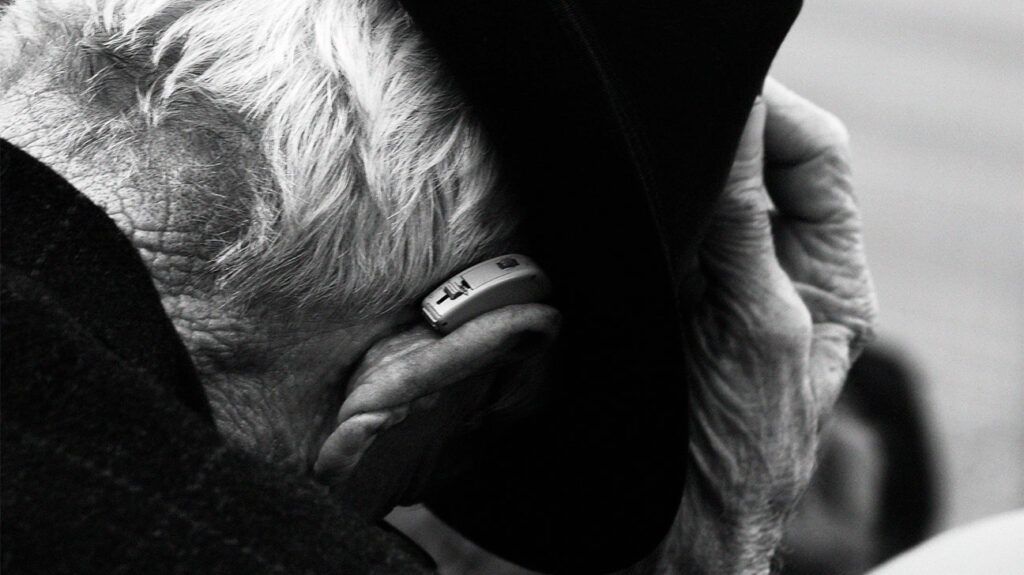
- Hearing loss causes structural changes in parts of the brain related to symptoms of dementia, according to a new study.
- The areas of the brain affected by hearing loss are regions associated with attention and executive function in the frontal cortex, as well as the auditory regions of the temporal lobe.
- Previous research has found that hearing loss is associated with dementia, although the relationship between the two remains to be clarified.
- Upcoming research investigates the possibility of reversing such changes with the use of hearing aids.
Hearing loss is associated with cognitive impairment and dementia. A landmark
A new study has now found that people with hearing loss exhibit microstructure differences in areas of the frontal cortex linked to executive function and speech and language processing. They also exhibit changes in the auditory regions of the brain’s temporal lobe.
Researchers from the University of California, San Diego and Kaiser Permanente Washington Health Research Institute identified these areas through hearing tests and magnetic resonance imaging (MRI) scans.
The study involved 130 participants in the Rancho Bernardo Study of Healthy Aging. Individuals had a mean age of 76.4 years, and 65% of them were women.
Researchers screened participants’ hearing between 2003 and 2005, at which time their better-hearing ear was tested for its average ability to hear a suite of oscillator-produced pitches at 500, 1,000, 2,000, and 4,000 Herz (Hz). These tones are roughly at the middle of the human hearing range.
MRI scans took place between 2014 and 2016, at which time, structural differences in participants’ brains were noted.
The study appears in the Journal of Alzheimer’s Disease.
The study’s first author, Kaiser Permanente’s Dr. Linda McEvoy, explained for Medical News Today that “[t]he brain areas that [the study] found to differ between people with and without hearing loss are not the brain areas that are most implicated early in Alzheimer’s disease — e.g., medial temporal lobe structures such as the hippocampus that are critical for memory.”
“Instead,” said Dr. McEvoy, “we observed differences in areas related to hearing, speech, and attention. We need further research to really understand how hearing impairment increases the risk of dementia.”
Prof. Jason Warren of University College London, in the United Kingdom, who was not involved in the study, pointed out that “[t]he links between hearing, brain changes, and dementia remain very complex, for a couple of major reasons.”
First, he cautioned that while “[h]earing [loss] can be associated with brain changes and even with cognitive deterioration, […] that is not the same as saying hearing loss causes Alzheimer’s disease.”
Second, he noted, the mere association between two things — in this case, hearing loss and dementia — does not explain which causes which, or if there is a causal relationship at all.
Describing the connection as a chicken-and-egg problem, Dr. Warren said: “Dementia may be exposed by hearing loss, but may also cause hearing loss in its own right — eggs are just as necessary for chickens as chickens are for eggs, and one determines the other. It’s quite possible both are in play.”
Both Dr. McEvoy and Warren agree that we do not know if brain structural changes might be slowed or reversed when a person with hearing loss uses hearing aids.
“We do not know whether these changes are reversible,” said Dr. McEvoy. “We are beginning to obtain evidence that hearing aids may slow down these types of changes.”
Dr. McEvoy highlighted a soon-to-be-published study with which she is not involved, called the ACHIEVE trial. It may offer some clues, since the trial describes the result of hearing aid effects on the brain.
The National Institutes of Health (NIH) recently presented a webinar hosted by Johns Hopkins’ Dr. Frank Lin discussing its preliminary results.
The recent study underscores the value of protecting one’s hearing. Avoid prolonged exposure to loud noises, otoxic medications, and take care to protect the ears when using loud tools or engaging in unavoidably loud activities.
Prof. Warren said: “Standard clinical hearing tests assess peripheral or ‘ear’-based [direct] hearing. At the moment, we are not very good at measuring ‘brain hearing’ — the sort of hearing we use, for instance, in following a conversation over background noise.”
This type of hearing is peripheral hearing.
“The key advice is that people should get their hearing checked out if they are worried about it in case they have a measurable kind of peripheral hearing loss — and they should wear hearing aids if prescribed because that may be helping to relieve cognitive stress on their brains.”
– Prof. Jason Warren
While we may think of hearing as being primarily an issue for older people, it also often affects younger people, making structural changes in the brain especially concerning.
In the academic years of 2021–2022 in the United States alone, 71,000 people aged 3 to 21 years had sufficient hearing issues that they qualified for coverage under the Individuals with Disabilities Education Act (IDEA).
Globally, according to the World Health Organization (WHO),
In the U.S., about 21% of people 75 years or older experience hearing loss.
Due to the world’s aging population, the WHO estimates that by 2050, almost 2.5 billion people will experience hearing loss, with it being severe enough in about 700 million people that they will require hearing aids.
